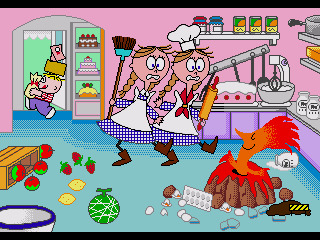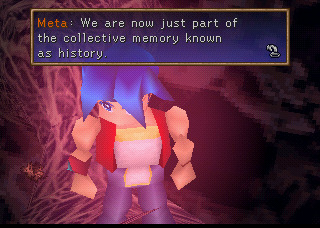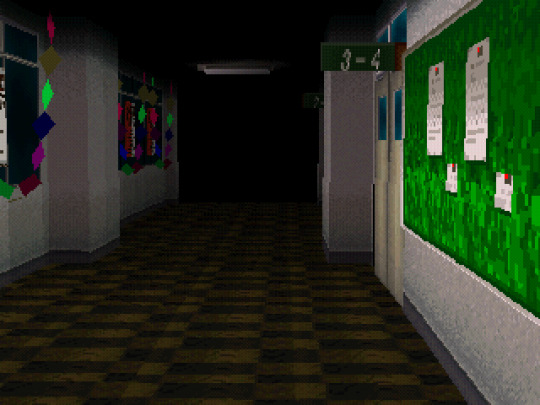#i have a tiny backlog of art i forgot to post so i will be getting to those in the next few days ^^ ♪
Explore tagged Tumblr posts
Text

they should meet i think…
#artz#final fantasy xiv#final fantasy ix#ffxiv#ffix#ryne waters#garnet til alexandros#ff#i have a tiny backlog of art i forgot to post so i will be getting to those in the next few days ^^ ♪#ryne reminds me a lot of dagger.. you see my vision…!!
38 notes
·
View notes
Text
Never do a webcomic on tumblr. Never do this.
It's fine to draw one little comic that you post on tumblr once. I can reasonably right click open image in new tab on maybe one or two or three images.
But you have a story to tell. That's hundreds of pages long. Each page is in a different tumblr post. You have conveniently linked all of those posts together in one archive post. Each post conveniently includes a 'next page' link that you edit and update as soon as the next page is posted.
But you seriously expect me to go through your whole comic, and right click open image new tab every single page? For your little passion project that's currently over a hundred pages long and hasn't even reached a recognisable first act/chapter end?
At the very least, you've got to do giant lettering.
There's actually a Zelda fancomic on tumblr that I love, it's about Zelda and Ganondorf ending the conflict between them by agreeing to a political marriage. And in the course of so doing, falling in love with each other for real.
And it might just be the only tumblr webcomic I've ever read that hasn't given me a headache.
And one of the reasons for this, is because the author have been very careful and attentive to this medium.
There's no panels. Every page is just a whole illustration. The lettering is enormous. You right click open image new tab and you see how massive the lettering is. The author is clearly taking great effort to fill all speech bubbles with huge words.
So that when readers see each page in the tumblr post, the words appear normal size. And therefore, are legible and comfortable to read.
If, on the other hand, you open up your graphics software of choice, procreate or whatever, and you draw a series of panels on a canvas that feels good to you, and then you add some speech bubbles that look good on that canvas and on that canvas alone?
You are wasting my time and yours. You upload your webcomic to tumblr and it is tiny. The words are small. I cannot read them without squinting the entire time that I read your comic.
Do you expect your readership to be exclusively people who give a half committal "lol" to each new page and then keep scrolling without any more love or even comprehension of your art? Do you only want your following to be made entirely of people who forgot major plot details five years ago and will never make the effort to reread the segment of relevant comic that was updating at that time? Are you so cynical as to think that new readers can only be interested because of the viral reblog chains and will have no desire to actually read the backlog for context of new pages or just to enjoy the comic on its own terms?
Adjust the dimensions of your comic to fit on tumblr or post it somewhere else.
0 notes
Text
clearance sale

clearing out some of my backlog of opinions before the new year so i can start anew. in this post I have accumulated some writing scraps on the only three topics: 1. finance 2. mystery 3. location

FINANCE
i enjoyed these recent-ish posts against the idea of indie sustainability, although as someone who already works a day job i always feel a bit ambivalent about the advice to just work a day job to pay for this stuff - - like yes, absolutely, do it, BUT sell your shit too in the knowledge that the type of precarity we associate w/ creative work is already in the process of being implemented everywhere else as well (or has already been - zero hour contracts, sub-living wages etc). like i am fortunate to still have a day job which pays a living wage and leaves me time to work on my own things on the side - but this feels like an anachronism rather than an inevitability right now.. maybe my unsustainable games will help keep me afloat when my job gets automated and i have to go work in an amazon warehouse, unsustainable games for an unsustainable job, ha ha ha. video games are an exploitative bubble but so is the rest of "the market".
it is true that this is a political problem rather than one in the narrow remit of things that can be fixed with the right 10-point sales plan- - nevertheless i think the issue of trying to make even small money off these things will remain kind of pressing as, in turn, regular employment comes more and more to resemble irregularly compensated hobbyist labour.
anyway one point i found really interesting, which i think all the above posts kind of grapple with - - the idea that it's not necessarily more "realistic" to aim at selling 1000 copies rather than 100,000. i think while we make fun of the aspiring millionaires a lot of people have just been banking on the idea of a fertile middle ground between the two extremes of tiny and ludicrous amounts of sales, between boom and bust. i'm sure there are still people working in that space but it seems like it's shrinking.
one question brendan keogh asks in his piece is "why should game makers be any different [from the norm of artists, musicians etc not really making any money]?" i think this can actually be answered a little - because hobbyist game development sort of exploded in tandem with the internet itself becoming more naturalized within everyday life, because the economic basis for indie games was always centered around the internet, which means people working in indie games were always in the vicinity of the massive, startling movements of capital that the internet rendered more visible and immediate. no more were the weird vicissitudes of the market hidden behind closed doors, in boardrooms or stock quotations - now you could log onto any site and see just bewildering amounts of money suddenly funnel into the pockets of this or that individual in real time, frequently to their own surprise as well. and i think this connected to something more general - a sort of ambient awareness of financialization, the way "the financial sector" cannibalized things like industry, the greater visibility of capital not as something embedded in some specific product or set of individual practices but as a kind of weird free-floating aura arbitrarily descending or departing. enormous reservesof "general" wealth became more visible just as the benefits and stability of waged employment became yet more desolate and i think you need to see the draw of one in part as a consequence of the other.
gacha-capitalism, permanent artificial scarcity coupled with the vague, insistent prospect of fantastic gains, as long as you keep playing. which is a rhythm already enshrined in many areas of working life - broke college students and unpaid graduates hustling for eventual employment, waged workers grinding through until retirement. but it's one the enhanced immediacy and swiftness of capital on the internet intensified and extended. fabulous payouts can strike anyone at any time, in exchange for slowly bleeding out the prospect of any other kind of livelihood. much like the austerity following the financial crash which levelled so many basic social services for no particular purpose other than the hope that doing so for long enough would please the gods of prosperity to start tossing money around again. all dues, no pay.
i do think it's worth being cynical about the efforts to domesticate this process, building a fair and sustainable biome within capitalism, by using the tools of that same capitalism etc. but if the format can't be seperated from the wider world then that's something which swings both ways. for me the most interesting critical work around vgames right now is in the effort to move outside of the constant, numbing boom-and-bust cycles of capital, the idiot repetition of exhilaration and depression and exhilaration and it'll all be okay as long as we can hold out one more cycle, particularly when that's a rhythm which has been central to the development of the format from the beginning. i think anyone involved with developing videogames has probably seen multiple generations of cool shit emerge, get abruptly killed off and written out of history in accordance with market diktats, and then replaced with a new wave of cool shit whenever the investors shift gears into "expansion" mode again. a mode of thinking about and preserving what people do that stands in opposition to this is something i can easily imagine being more generally useful in the culture, as ever more areas of life and culture start becoming subject to the same questions.

MYSTERY
there's a mystery in depth and a mystery in shallowness. with depth the habitual glance of recognition goes out and falls through - you can place roughly where something is in relation to the world, but not what it's doing, not where it goes. as a presence it seems to require a new mode of attention to be recognized, which i guess is why it sometimes makes me uneasy - that challenge, the way that challenge can be moralized. are you a bad enough dude to engage with art?? if there are 100 black obelisks in a field which one do you decide to look at? and will it really turn out to be deep, or just dense?
videogames can feel like depth-worship, like the embodiment of an essentially cthonic system of values. how deep did you go and what did you see there? did you find the gold bars in pac-man? (www.mikesarcade.com/cgi-bin/spies.cgi?action=url&type=info&page=pmgoldbar.info.txt) did you see the secret ending? how far did you get into the game mechanics, into the lore? this marks the top 10 deepest players on this game. surpass them... if you dare. an ethos of diligent attention, hierarchial levels of understanding and initiate-dom, a sub-culture. and at best a maguslike dedication to altered states of consciousness that i can respect, an interest in shifting through mangled pieces of debris in search of secret mysteries. at worst the authority cults and tests of true belonging that spring up around those mysteries, whose value is in being hidden and whose guarantee is in the strenuous effort with which they must be located. paranoia about true spiritual meanings being plundered by opportunistic interlopers. stay out. get good.
the videogame has the basic opacity of the computer system and the act of engaging with this curious abyss is allegorized into dungeons, castles, mazes. trapdoors and secret corridors. one pleasure in looking up older games for me is in seeing them recognize and learn how to thematize this basic sense of mystery. in bubble bobble the obscure scoring mechanics and secret endings are cheekily perverse, arcade challenge by another means - another system to game. in king's quest there's something like a crossfertilization between the strange causal voids of the fairy tale and the adventure game: "Exit the gingerbread house and go east and east. There is a large walnut tree here. Take walnut and then open walnut to discover a gold nut. Head east and take bowl . Look bowl to see the words “fill” at the bottom. Fill and the bowl will fill up with a delicious stew." the wizardry games took the connection between mysterious game systems and occult knowledge much further - the "true" ending of wizardry iv means finding a secret chamber and answering a series of riddles based on your knowledge of the kaballah (or at least, kaballah-derived tarot interpretations).
it's easy to moralize depth - lotus eaters, magic islands. you wander through a strange land and then return to find it's 5 hours later and you forgot to eat. there's something creepy to me about depth on an industrial scale, about building huge tunnels with massive teams on forced overtime, and then a team of professional tunnel reviewers cautiously start descending on ropes and come back every so often and say, well, 20 hours in and it all looks ok, and meanwhile everybody else is jumping en masse. maybe that's more of an issue with consumer culture in general. but sometimes it feels like a way to avoid dealing with certain inherent limitations of that culture, or even limitations of art in general, by projecting those limits out to the end of ever-deeper tunnels that fewer and fewer people will ever see, the rest of them straggling back, exhausted, getting jobs. well, i can't tell you if red dead 2 is good or not. i only got 60 hours in, and i never even found all the falcons.
if the mystery of depth is having too much space for speculation to operate coherently within, the mystery of shallowness is having not enough space for speculation to operate at all: something is too manifestly there, limited, closed-off, it's hard to push it away to get some metaphorical breathing room.
i feel this way sometimes reading writers like tove jansson, flannery o'connor - SOMETHING happened, the stories are short and clear and describe some definite event without too much uncertainty, they even have "broader themes" raised - but somehow the themes feel embarrassingly outsize for the stories, and the stories remain too clearly defined to sink back into the murk of a generalized moral or experience. they feel like moral stories when you can't work out what the moral might be.
robbe-grillet on raymond roussel: "Now these chains of elucidations, extraordinarily precise, ingenious, and farfetched, appear so derisory, so disappointing, that it is as if the mystery remained intact. But it is henceforth a mystery that has been washed, emptied out, that has become unnameable. The opacity no longer hides anything. One has the impression of having found a locked drawer, then a key; and this key opens the drawer impeccably... and the drawer is empty."
there's a famous shallowness to videogames as well that's most often caught by people outside the culture - when you see the fake videogames in a comicbook, or on tv, and they're named something like "washing machine simulator 3000" or "municipal tax assailants". and part of this also stems from the computer, the history of the computer as it insinuated its way into everyday life, as a mysteriously elaborate and convoluted way of doing just impossibly banal things, like balancing chequebooks or printing text. the stubborn thingliness of not-quite-functional machines, the way the thingliness glosses and corrodes their own internal fantasies, mirrors of the basic weirdness that is human consciousness as a material fact within the world.
with my friend i used to joke about "e3" just being the dumpster behind an abandoned gamestop - all those needy longform experiences frozen into evocative trinkets. find a nonfunctional disk copy of mario odyssey and it gives you all the same delight as playing mario odyssey, only without having to. i think there's something beautiful about that flatness, that directionless object-hostility, the rejection of the grandoise hero's journey fantasies that it implies – as well as something baleful, a rejection of consciousess in general, the idea that it could take you anywhere not inside your own head.

LOCATION
why are there so many videogames about going outside? every time i've played a videogame it's been inside a room, usually a dark one, mostly while still wearing my pajamas. for me it is an internal activity. but not only do all these games take place in fields and plains, they always talk about the wonders of going on a voyage, the beauty of the great outdoors, the superiority of the wandering main characters to the slugs and layabouts who sit at home all day.... it's weird to me, i demand we move past these cloying pseudo-critiques. raymond williams once pointed out that the first pastoral was written from the perspective of a rentier daydreaming of cashing out and moving to a country home. i demand more games with the courage of their implict convictions and that if they require you to sit motionless indoors for hours they should explicitly establish and argue for a value system in which this is the best possible thing that you can do. imagine if movies were all set in dark chambers full of people sitting down - i think i can say they would be much less insipid as an artform. "all of man's problems stem from an inability to stay in his room".
(images: Gakken No O Benkyou Soft Kazu Suuji, Legend of Legaia, a Chinese bootleg cart, and ...Iru!)
29 notes
·
View notes